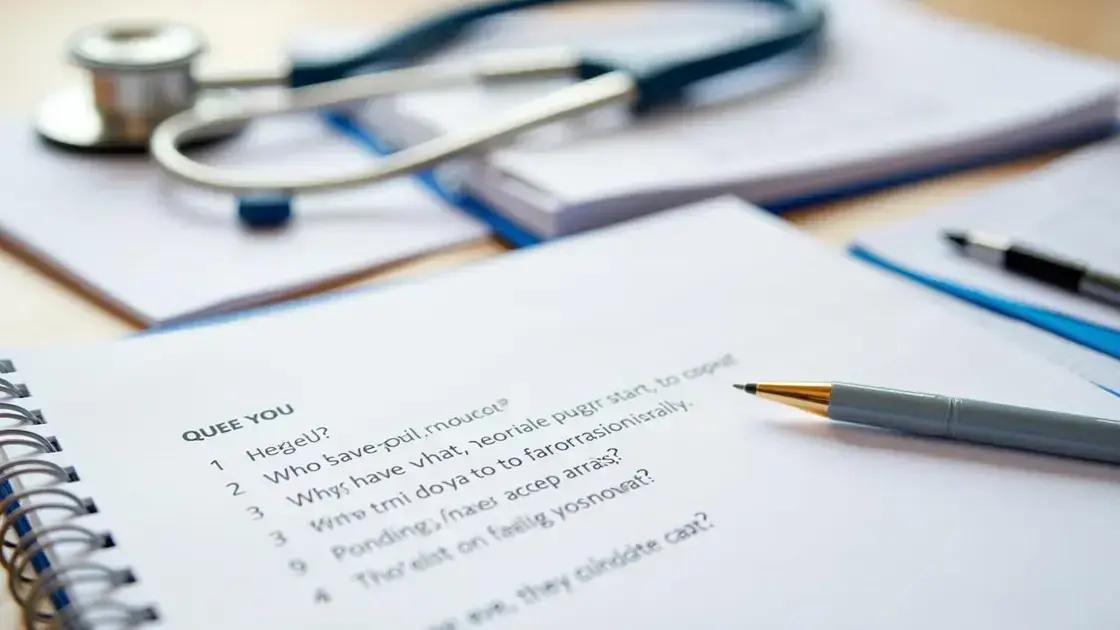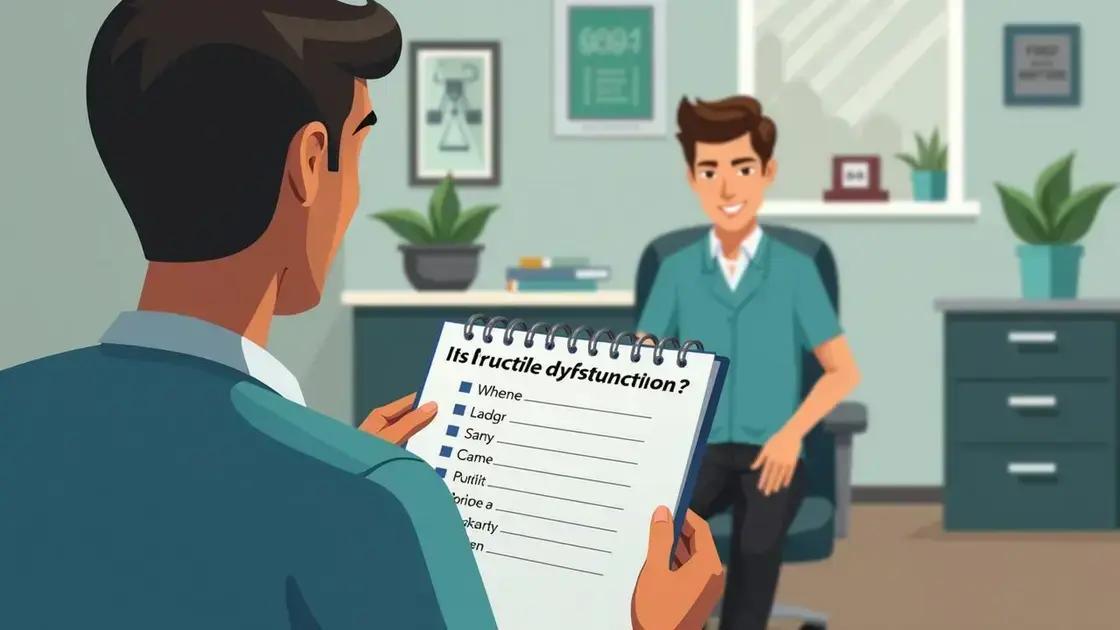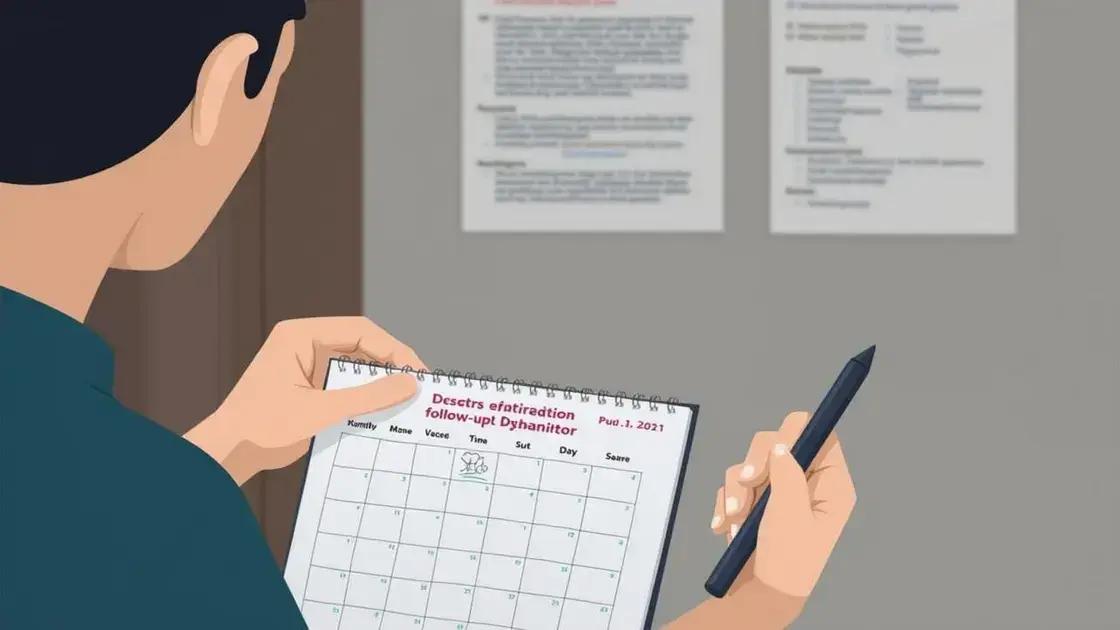Talking to your doctor about erectile dysfunction is vital for understanding its causes and exploring treatment options. Prepare by gathering your medical history, listing medications, and tracking symptoms. Ask questions about potential causes, tests, and treatment options to foster effective communication. Follow up on your progress, involve your partner in discussions, and seek additional resources for support to manage this common condition effectively.
Erectile dysfunction (ED) affects many men, yet discussing it with a healthcare provider can be daunting. Effective communication is crucial for identifying the causes and discussing treatment options. This article will provide you with strategies on how to talk to your doctor about erectile dysfunction confidently. We’ll cover the importance of understanding ED, why communication matters, how to prepare for your appointment, essential questions to ask, and what to expect in your follow-up visits.
Understanding Erectile Dysfunction

Erectile Dysfunction (ED) is the inability to achieve or maintain an erection suitable for sexual intercourse. This condition can affect men of all ages, but it is more common in older men. Understanding the underlying causes of ED is important for effective treatment.
Causes of Erectile Dysfunction
There are various factors that can contribute to erectile dysfunction. They can be categorized into physical and psychological causes. Physical causes may include diabetes, heart disease, hormonal imbalances, hypertension, and certain medications. Psycho-emotional factors can include stress, anxiety, depression, and relationship issues.
Risk Factors
Several risk factors may increase the likelihood of experiencing erectile dysfunction. These include:
- Age: Older men are at a higher risk.
- Obesity: Excess weight can affect hormone levels.
- Tobacco Use: Smoking can restrict blood flow.
- Alcohol and Substance Abuse: These can impair libido and erectile function.
- Lack of Physical Activity: A sedentary lifestyle can contribute to ED.
Diagnosis
To properly understand erectile dysfunction, it is essential to undergo a thorough evaluation. This may involve:
- A physical examination to check for underlying health issues.
- Blood tests to assess hormone levels and underlying health conditions.
- A review of medical history, including any medications being taken.
Recognizing and acknowledging the issue is the first step toward effective communication with your doctor. Having a clear understanding of the condition can help you describe your symptoms and concerns more accurately when discussing them with your healthcare provider.
Why Communication is Key

Effective communication is essential when discussing sensitive health issues such as erectile dysfunction (ED). Many men feel embarrassed or anxious about the topic, which can hinder open dialogue with their doctors. Understanding the importance of communication can help alleviate these concerns and promote better health outcomes.
Building Trust
When you communicate openly with your doctor, you build a trusting relationship. This trust encourages you to share details about your health and any symptoms you might be experiencing. A solid doctor-patient relationship is critical for effective diagnosis and treatment.
Providing Accurate Information
To help your doctor understand your situation better, it’s essential to provide accurate and detailed information. Be prepared to discuss:
- How long you’ve experienced ED
- Any other symptoms you may have
- Your medical history, including medications
- Lifestyle factors such as smoking or alcohol use
Reducing Stigma and Anxiety
Talking about ED can feel intimidating. However, remember that doctors are trained to handle these discussions sensitively. Sharing your concerns openly can help reduce stigma and the anxiety associated with ED. It can also empower you to take charge of your health.
Facilitating Treatment Options
The more your doctor knows, the better the treatment options they can provide. Open communication allows your doctor to recommend appropriate tests, treatments, or referrals to specialists if necessary. This collaborative approach can lead to more effective management of your condition.
Encouraging Follow-Up
After your initial discussion, effective communication encourages follow-up conversations. Regular check-ins can help track progress and adjust treatment as needed. Do not hesitate to reach out if you have questions or concerns after your appointment.
Preparing for Your Appointment

Preparing for your appointment is an important step in discussing erectile dysfunction (ED) with your doctor. Taking time to get ready can lead to a more productive visit and help address your concerns effectively.
Gather Medical History
Before your appointment, compile your medical history. Include any existing health conditions, previous surgeries, and treatments you have undergone related to ED. This information provides your doctor with a clearer picture of your health.
List Current Medications
Make a list of all medications you take, including over-the-counter drugs, supplements, and herbal remedies. Some substances can contribute to erectile dysfunction, so it’s vital for your doctor to know what you are taking.
Track Symptoms
Note any symptoms related to your erectile dysfunction. Consider keeping a journal for a few weeks leading up to your appointment. Record when the issues occur, their frequency, and any other related factors, such as stress or fatigue.
Prepare Questions
Write down specific questions you want to ask your doctor. Examples include:
- What could be causing my erectile dysfunction?
- What tests do I need to undergo?
- What treatment options are available?
- Are there lifestyle changes I can make to improve my condition?
Discuss Emotional Well-Being
It’s essential to communicate any emotional factors contributing to your ED, such as anxiety or relationship issues. Being open with your doctor about your emotional health can lead to better treatment plans.
Be Honest and Open
Approach the appointment with honesty. Share your feelings about your condition, and do not hesitate to express any concerns. Remember, your doctor is there to help.
Questions to Ask Your Doctor

When meeting with your doctor about erectile dysfunction (ED), asking the right questions can help you understand your condition and explore treatment options. Here are some important questions to consider:
What might be causing my erectile dysfunction?
Understanding the underlying causes is crucial. Ask your doctor if your ED is related to physical health issues, psychological factors, or a combination of both.
What tests will I need?
Your doctor may recommend specific tests to diagnose the cause of your ED. Inquire about blood tests, physical exams, or any other evaluations that are necessary.
What treatment options are available?
Discuss the range of possible treatments. This may include medications, therapy, lifestyle changes, or other interventions. It’s important to understand all your options.
Are there any lifestyle changes that can help?
Ask your doctor if making adjustments to your diet, exercise, or other habits could improve your condition. Lifestyle changes can be a key part of managing ED.
What are the potential side effects of treatments?
Every treatment has risks. It’s vital to discuss the potential side effects and what you might expect from the recommended therapies.
Should I see a specialist?
Your doctor might suggest seeing a urologist or a mental health professional. Ask if a referral to a specialist is necessary for your case.
How can I talk to my partner about this issue?
Discussing ED can be difficult. Ask for advice on how to communicate with your partner effectively about your experiences and feelings.
Follow-Up and Next Steps

Follow-up and next steps are crucial after your initial appointment regarding erectile dysfunction (ED). Staying proactive can help you manage your condition effectively.
Schedule Follow-Up Appointments
Depending on what your doctor advises, it may be necessary to schedule a follow-up appointment. This allows you to discuss your progress, any side effects from medications, and other ongoing concerns.
Monitor Your Symptoms
Keep track of your symptoms after your visit. Document any changes, improvements, or new issues that arise. This information can help your doctor make informed decisions about your treatment plan.
Communicate in Between Appointments
If you experience any concerns or reactions to treatment, do not hesitate to reach out to your doctor. Effective communication is key, so share your experiences as they occur rather than waiting for the next appointment.
Involve Your Partner
Involve your partner in the process. Discussing your feelings and experiences together can strengthen your relationship and support your mental health during this time.
Be Open to Adjustments
Understand that treatment for ED may require adjustments. Be open to trying different therapies or medications until you find what works best for you. Your doctor may suggest lifestyle changes, therapy, or new medications based on your progress.
Seek Additional Resources
Look for educational materials or support groups. Reading articles or connecting with others facing similar challenges can provide insights and encouragement.
Summing Up the Journey of Discussing ED
Talking to your doctor about erectile dysfunction is a vital step towards understanding and managing your health. By preparing effectively, asking the right questions, and maintaining open communication, you can foster a supportive environment for your treatment.
Remember that erectile dysfunction can stem from various physical and emotional factors, making it essential to approach the topic with honesty and clarity. Engaging with your healthcare provider will help you explore suitable treatment options and empower you to take control of your well-being.
Finally, follow-up appointments, symptom monitoring, and involving your partner in these discussions will enhance your journey toward improved sexual health. Do not hesitate to seek resources and support as you navigate this sensitive topic. You are not alone, and proactive steps can lead to effective management of your erectile dysfunction.
FAQ – Frequently Asked Questions About Discussing Erectile Dysfunction
Why is it important to talk to my doctor about erectile dysfunction?
Discussing erectile dysfunction with your doctor is essential for understanding the underlying causes and exploring appropriate treatment options.
What should I prepare before my appointment?
You should gather your medical history, list your current medications, track your symptoms, and prepare questions to discuss with your doctor.
What types of questions should I ask my doctor?
You can ask about the possible causes of your ED, required tests, available treatment options, lifestyle changes, and potential side effects of treatments.
How can I ensure effective communication with my doctor?
Being open and honest about your symptoms and concerns while providing accurate information will help foster effective communication.
What steps should I take after my appointment?
Schedule follow-up appointments, monitor your symptoms, communicate any changes to your doctor, and involve your partner in discussions about your condition.
Are there support resources available for men dealing with ED?
Yes, there are many educational materials, online resources, and support groups that can provide help and guidance.












